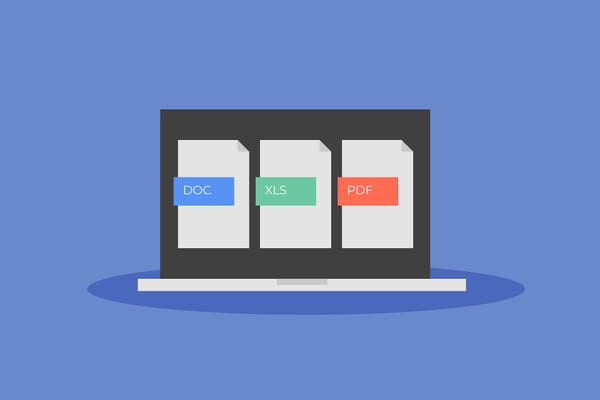How to Spot and Protect Your Business from Fake Reviews: Red Flags, Tips, and Tools

Customers rely on reviews before making decisions, whether they're choosing a product, booking a service, or visiting a restaurant. In fact, consumers read an average of 10 online reviews before they trust a business.
But what happens when a review is fake? Fake reviews written by scammers can seriously damage a business, leading to lost customers, lower sales, and a tarnished reputation.
After all the work that you put into setting up the perfect business, seeing harmful and malicious reviews can be extremely disheartening.
Did you know?
- About 30% of online reviews are fake.
- Each extra star in ratings can increase a brand's sales by 5-9%.
- Around 82% of people have read a fake online review in the past year.
- About 74% of people say they can't always tell if a review is real or fake.
- About 94% of consumers have refrained from brands with negative reviews.
(Source: Fake Reviews Stats)
Why Do Scammers Post Fake Reviews?
Even if your products or services are excellent, you might still get hit with bad or malicious reviews that scare away potential customers. It can be frustrating and confusing—why would anyone do this? It all comes down to one thing: manipulating public perception for their own benefit.
For example:
To Undermine competitors: Scammers might post false negative reviews about a business to make their company (or one that hired them) look better. This tactic is often used to damage a competitor's reputation and steal customers.
To promote their scams. Malicious actors promote their scams by using fake positive reviews to make their low-quality products or services appear trustworthy.
One common scheme is known as the "brushing scam." In this scam, scammers steal the names and addresses of real shoppers from online marketplaces. They then create fake accounts using this information, "purchase" their products, and leave fake positive reviews under the stolen names. As a result, the actual shoppers receive mysterious packages they never ordered, which can include either the intended products or random junk.
While receiving free items might initially seem harmless, these victims have had their personal information compromised. Their details could be sold or used for identity theft in the future. Victims might share their negative experiences online, damaging the reputation of businesses that had nothing to do with the scam.
To blackmail businesses owners: In some cases, scammers use fake reviews as a form of extortion: they post negative reviews about a business and ask money to remove them. This puts pressure on businesses, especially small ones, that feel they have no choice but to pay to protect their reputation.
In 2022, restaurants all over America were being targeted by a fake review scam. Scammers created numerous one-star reviews on Google, then days later, demanded money to remove them.
The Effects of Fake Reviews on Businesses
Search engines like Google want to recommend the best businesses to their users. They use reviews, including negative ones, to determine which companies are trustworthy and which might let their users down.
· Damaged reputation: A few bad reviews can shake the trust potential customers have in your business, causing them to second-guess whether they should choose you.
· Lost sales: For many customers, reviews are the deciding factor when making a purchase. If they come across negative reviews, even if they're fake, they may reconsider their choice.
· Lower search rankings: Negative reviews can lower your business's ranking on search engines, making it harder for potential customers to find you online.
· Wasted resources: Dealing with fake reviews can be time-consuming and costly. Whether you're spending time addressing them, paying for reputation management services, or dealing with legal issues, it drains resources that could be better spent growing your business.
How to Spot Fake Reviews
Here are some tips:
- Generic or overly positive/extremely negative language: Fake reviews often use vague, exaggerated phrases like "amazing product" or "best service ever" without providing any actual details. Overly negative reviews with no specific context or explanation may be intended to harm a business rather than offer genuine feedback.
- Length and specificity: Fake reviews tend to be either very short or unnecessarily long. They may offer glowing praise or harsh criticism but lack useful, specific information about the product or service.
- Unusual patterns: Watch for reviews that appear in clusters within a short time frame. If several reviews use almost the same language, it's a strong indicator of fake reviews being posted in bulk.
- Repetitive phrases: A common giveaway is the use of similar or identical wording across multiple reviews. If you notice the same phrases repeating either in different reviews or within a single review, that's a red flag.
- Shady reviewer profiles: Take a closer look at who's leaving the review. Fake reviewers often have sparse profiles, limited activity, or seem to only leave extreme reviews—either overly positive or extremely negative. If the account looks suspicious or targets only one business, it's worth questioning the credibility of the reviews.
Combating Fake Reviews: Strategies and Tools
If you've received fake reviews about your business, taking action can help protect your reputation.
- Respond calmly and professionally: Avoid getting defensive, respond politely, addressing any concerns raised.
You have two options:
1. Private Response: Reach out to the reviewer privately, giving them a chance to remove their review. This approach may help resolve the issue amicably.
2. Public Response: You can respond publicly in a professional and thoughtful manner. This allows others to understand the context of the review, whether you dispute its claims, and how your business addresses customer feedback.
- Report the review: Most review platforms, such as Google, Yelp, and Trustpilot, allow businesses to report fake reviews. Gather evidence showing the review is false or malicious, and submit it to the platform for removal.
How to do it:
- Check the website's review policy or guidelines. If you believe the review violates these policies, request its removal.
- Include as many factual details as possible to show that the review is inaccurate or not reflective of your business's services, products, or location.
- If you suspect that a competitor wrote the review, provide relevant details to the review platform. This can help them check IP addresses and determine the source of the review.
- Encourage genuine reviews: Ask satisfied customers to leave honest reviews. The more legitimate, positive reviews you accumulate, the easier it is to overshadow fake ones. Genuine feedback also builds trust with new customers.
- Monitor reviews regularly: Keep a close eye on your business's online reputation. By regularly checking for fake reviews, you can address them quickly before they cause too much damage.
- Consider legal action: In some cases, such as repeated fake reviews or extortion, consult a lawyer to explore legal options. This may be necessary if scammers are causing significant harm to your business or using fake reviews to blackmail you.
How to Protect Your Business from Fake Reviews
Bitdefender Ultimate Small Business Security offers solutions to help you stay on top of this challenge with its powerful tools.
Here are two specific ways you can use the product:
- Monitor Your Business's Digital Identity with Business Assets Exposure
To protect your business from fake reviews, the first step is to track when your business is mentioned online, even beyond your website or social media pages. Bitdefender's Business Assets Exposure tool helps monitor your business digital identity, alerting you of mentions of your business name, email, or other important information. If your data appears in breaches or is misused, you'll receive immediate notifications, enabling you to take action before the situation escalates.
2. Use Scam Copilot to Detect Fake Reviews
Make the difference between a genuine but upset customer and a scammer with Scam Copilot. Scammers are increasingly sophisticated, and their fake reviews often seem convincing.
Scam Copilot is an AI-powered tool designed to analyze and identify suspicious patterns associated with scams. Just input the text or URL of the review, and Scam Copilot will analyze it for you, providing the confidence you need to take appropriate action.
Business Assets Exposure and Scam Copilot are part of Bitdefender Ultimate Small Business Security, a comprehensive solution consistently reaching the top positions in industry tests for protection and performance.
Find out more about the plans here.
FAQs
How can I protect my business from fake reviews online?
Monitor your online presence and take action when suspicious reviews appear. Using Bitdefender Ultimate Small Business Security, you can stay ahead of fake reviews with tools like Business Assets Exposure, which alerts you when your business is mentioned online or in data breaches. Scam Copilot helps you identify fake reviews by analyzing suspicious patterns, such as repetitive language and questionable reviewer activity, allowing you to take control of your business's reputation.
What should I do if I suspect a fake review is damaging my business reputation?
Start by reporting the review on the platform where it was posted, providing any evidence of its inaccuracy. Responding calmly and professionally to the review can also help demonstrate transparency to other customers.
What are the red flags for fake reviews?
Red flags often include overly generic or extreme language, like "worst service ever," without specific details, very short or very long texts, repetitive phrases, or unusual posting patterns, such as many reviews appearing in a short period. Profiles with limited activity or repeatedly reviewing the same product or business may also indicate fake reviews.
Should I pay if a scammer threatens me with a fake review?
No, you should not pay a scammer who threatens you with fake reviews. Paying could encourage further extortion attempts, as scammers often target businesses they believe are willing to pay. Instead, document the threats, report them to the review platform, and consider consulting with legal or cybersecurity professionals for guidance.
tags
Author
Cristina is a freelance writer and a mother of two living in Denmark. Her 15 years experience in communication includes developing content for tv, online, mobile apps, and a chatbot.
View all postsRight now Top posts
How to Protect Your WhatsApp from Hackers and Scammers – 8 Key Settings and Best Practices
April 03, 2025
Outpacing Cyberthreats: Bitdefender Together with Scuderia Ferrari HP in 2025
March 12, 2025
Streamjacking Scams On YouTube Leverage CS2 Pro Player Championships to Defraud Gamers
February 20, 2025
How to Identify and Protect Yourself from Gaming Laptop Scams
February 11, 2025
FOLLOW US ON SOCIAL MEDIA
You might also like
Bookmarks







